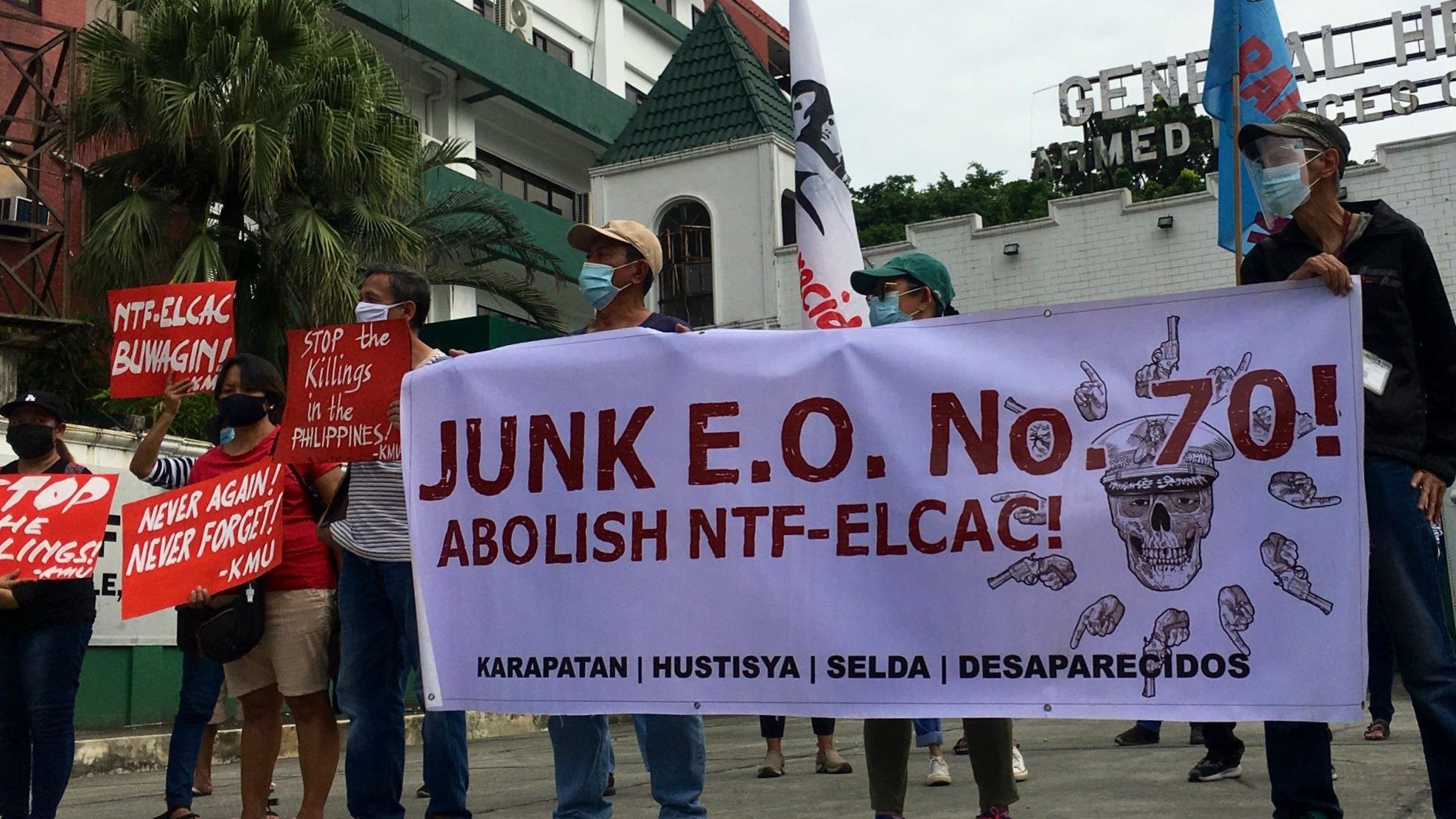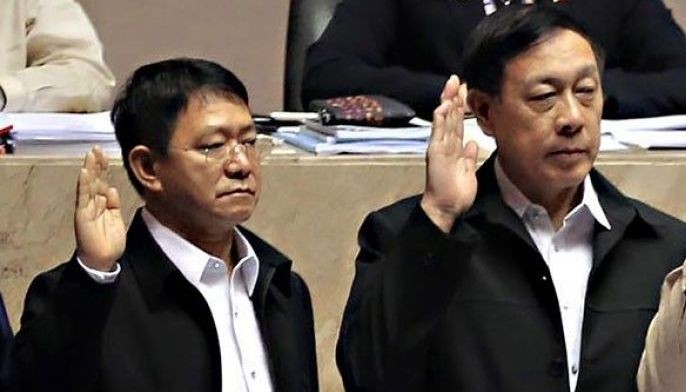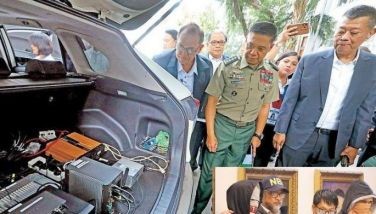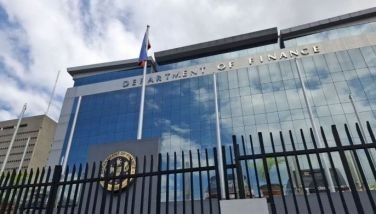Groups call for gov't action on UN Rapporteur's recommendation to abolish NTF-ELCAC

MANILA, Philippines — Groups have called on the government to implement the recent recommendations of United Nations (UN) rapporteur Ian Fry to abolish the National Task Force to End Local Communist Armed Conflict (NTF-ELCAC).
Fry, UN special rapporteur on the promotion and protection of human rights in the context of climate change, recommended the abolishment of NTF-ELCAC on November 15, citing that it “operates with impunity” and that another body should be created to replace it.
Aside from the abolishment of NTF-ELCAC, groups are also appealing for the protection of environmental defenders and the continuation of the peace agreement between the government and the National Democratic Front of the Philippines (NDFP) which was scrapped in 2017, and the abolition of the controversial anti-terrorism law.
“The Philippines, or any country, cannot fully enjoy human rights if 1) climate change is not addressed, and 2) those protecting the environment are met with violence. We cannot have peace and justice if these are not resolved,” Council of Leaders for Peace Initiatives said in a statement.
“Red-tagging has grave consequences such as the imprisonment, abduction, and execution of defenders. Thus, it is evident that the environmental situation and human rights are inextricably tied,” they added.
According to a report of the Institute for Economics and Peace in 2019, Philippines is the country most at risk from climate crisis. For the tenth consecutive year, London-based watchdog Global Witness also said that Philippines remains the deadliest country in Asia for individuals defending their land and the environment.
The Philippines was also the fifth most dangerous country for environmentalists worldwide in 2022.
Meanwhile, Philippine Ecumenical Peace Platform (PEPP), a third party facilitator of the peace talks between the government and the NDFP which comprise of religious leaders, also lauded Fry’s recommendation.
They said that the Fry’s recommendations were both reasonable and crucial in the pursuit of a just peace in the country. They highlighted the significance of removing institutionalized barriers and emphasized the correlation between people’s vulnerability to climate change and underlying issues such as widespread poverty, lack of land ownership, and unequal wealth distribution, which they identified as primary drivers of the armed conflict.
“Such a complicated conflict will not be solved by a counter-insurgency program with billions of budgets, if the roots that fan its flames are not addressed,” PEPP said in a statement on November 18.
“The findings of Mr. Fry, whose work is focused on the intersection of climate justice and human rights, should serve as a reminder to all that too many have been unjustly persecuted for defending local communities from displacement and for affirming the right of our people to live with dignity,” they added.
In September, the Catholics Bishops Conference of the Philippines, with some members also belonging to PEPP, said that its Episcopal Commission on Public Affairs became a member of NTF-ELCAC but withdrew its membership weeks after.
RELATED: Pinoys oppose CBCP office’s membership in NTF-ELCAC).
Last week, members of the NTF-ELCAC said that Fry’s report is “incomplete.” It urged the UN rapporteur not to interfere with the Philippines’ “internal mechanisms.”
Since its establishment in December 2018, NTF-ELCAC has faced criticism from multiple groups for its practice of red-tagging.
In September 2023, the Ombudsman reprimanded two former NTF-ELCAC members for linking a group of lawyers to the communist insurgency. — with reports from Gaea Katreen Cabico, Bella Cariaso and Rommel Lopez
- Latest
- Trending






































